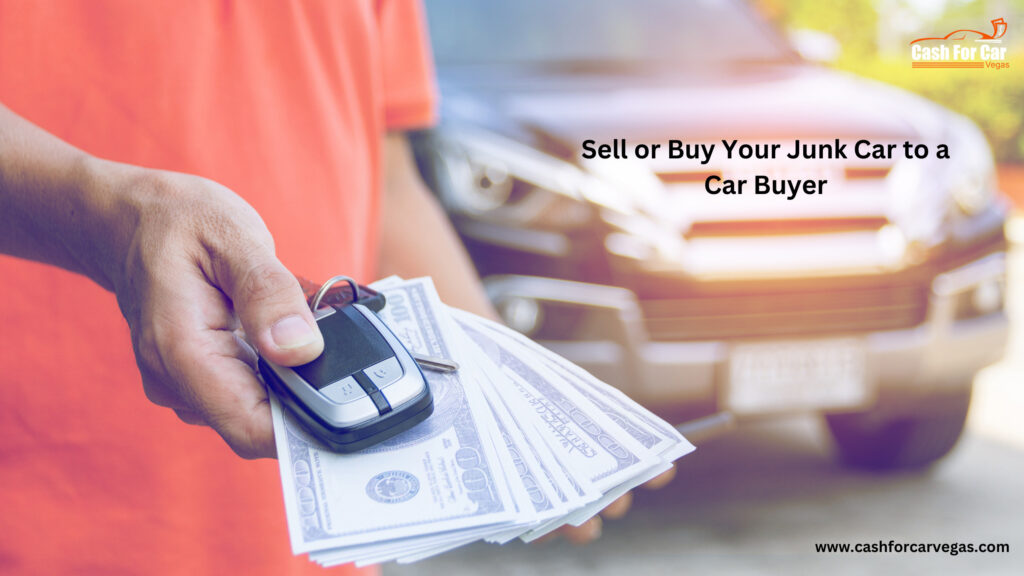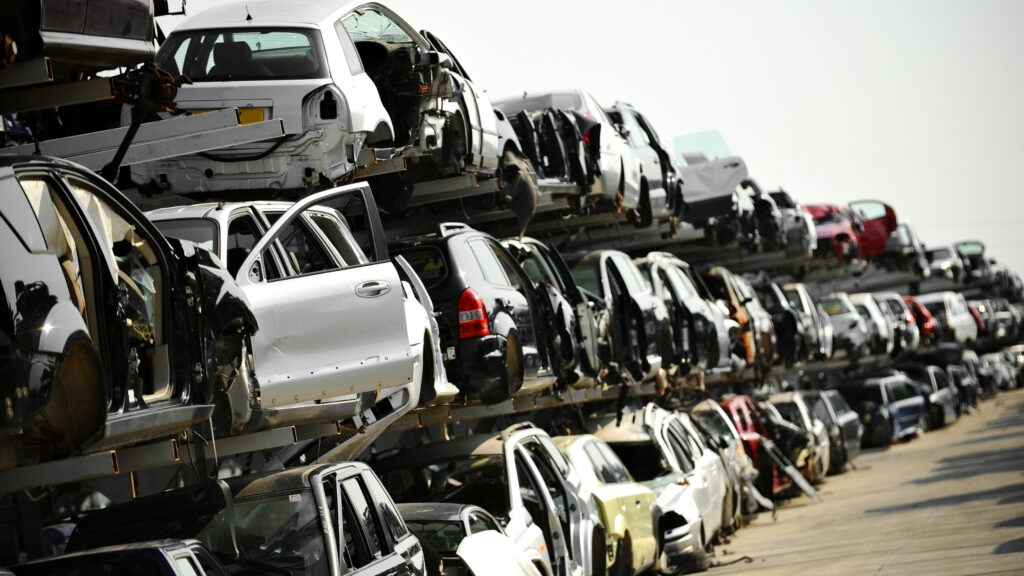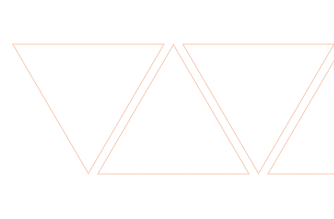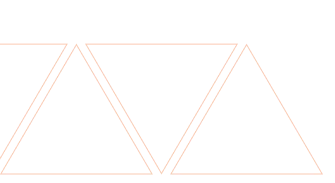
Best Place Las Vegas To Sell Junk Cars for the Most Value
If you want to sell or scrap your junk car, you may either manage the sale online or discover what local junk or scrap buyers would pay. In either case, compare prices from local and online buyers to obtain the greatest deal.
Local Scrapyards
While looking for the greatest price for your trash or wrecked vehicle, don’t overlook local junk auto buyers. Certain nearby scrapyards could be able to provide you with more for your automobile than just an online car buying service, depending on the current price of scrap metal.
You might need to submit your car’s VIN, mileage, and other information in order to receive the best offer. Junkers and salvage yards frequently include free in-house towing when making an offer to acquire your car. Although towing costs can be subtracted from the total amount they pay for your car, they will come to you to pick up your old car.
Places That Buy Junk Cars
These are businesses specializing in buying junk cars. They often offer free towing and can handle the paperwork. Get quotes from several companies before making a decision.
Private Buyers
Your trash car may be purchased by some private purchasers for components, disassembly, restoration, or even creative purposes. Both sides bargain about who will cover the cost of the tow truck driver in these exchanges. Although private buyer marketplaces might not be the most reliable choices, they might be worthwhile to investigate if you want your automobile to be put to good use. In a private sale, you might be able to receive a higher price for your vehicle.
Here's a secret tip
Do not limit yourself to only Las Vegas. Search the internet for national cash for car companies in your location. This can lead to increased competition and, potentially, a better deal.
Brick-and-mortar Junk Buyers vs. Online Services
Some dealerships specialize in paying cash for used, junk, or scrap cars. These places frequently buy and deconstruct cars for parts or junk.
Both brick-and-mortar junk car buyers and online services have their pros and cons.
Brick-and-mortar: You can visit the company in person and have a conversation with someone face-to-face. While this may reassure you, it may also reduce your alternatives.
Online Services: Online junk buyers simplify the selling of used or salvage vehicles by enabling sellers to make offers, manage the necessary paperwork, and arrange for pickup or towing services from a single, central location.
Junkyards: A Viable Option, But Not Always the Best
Junkyards primarily focus on recycling scrap metal, so the offered price might not reflect the full value of your car, especially if it has usable parts.
However, junkyards can be a good option if:
- Your car is in very poor condition.
- You need a quick and hassle-free way to get rid of it.
- You’re comfortable with a lower price in exchange for convenience.
How To Sell a Junk Car: A Step-by-Step Guide
Selling your junk car shouldn’t be a headache. Here’s a breakdown of the process:
- Find Your Junk Car’s Value: Research online or get quotes from different buyers to understand the car’s market value. Consider factors like year, make, model, condition, and current scrap metal prices.
- Prepare Your Car: Gather all the paperwork, including your vehicle’s title, registration, and proof of insurance. Remove any personal belongings from the car.
- Check Local and State Requirements: Regulations regarding selling junk cars can vary by location. Check with your local DMV to understand any necessary paperwork or procedures.
- Get Quotes and Accept the Best Offer: Compare quotes from various buyers and choose the one that offers the most money for your car. Read the fine print carefully before accepting an offer.
Tips for Selling a Junk Car Like a Pro
Thinking of getting rid of your clunker? Here’s how to sell your junk car smoothly and get the most out of it:
- Title in Hand: Make sure you have the car’s title to prove ownership.
- Gather Your Belongings: Don’t forget to remove any personal items from the car and trunk before selling it.
- Shop Around: Get quotes from junkyards, used car buyers, and even private sellers (interested in parts) to maximize your return.
- Selling for Parts? : Consider if selling the car for parts might be more profitable than selling it whole.
- Public Place for Private Sales: If selling privately, meet the buyer in a well-lit public space for safety.
- Notify the DMV: Once the sale is complete, follow up with your Department of Motor Vehicles (DMV) to transfer ownership.
- Wrap Up: Cancel your car insurance and registration to avoid any further charges.
Who Buys Cars That Don't Work?
The good news: Many cash for car companies and junkyards are happy to take cars that don’t run. In fact, a non-functional car might still have valuable parts for them to recycle.
Here’s what to consider when selling a non-running car:
- The price might be lower: Without a functioning engine, the car’s overall value decreases.
- Be upfront about the problems: Clearly communicate the extent of the car’s issues to avoid any surprises for the buyer.
- Prepare for towing: Many cash for car companies offer free towing for junk cars, running or not. Confirm this detail before accepting an offer.
Alternative Options for Junk Cars
While getting cash is a common goal, there are other options for getting rid of your junk car:
- Donation: Donate your car to a qualified charity. This can offer a tax deduction and benefit a worthy cause. However, some charities might have limitations on the type and condition of cars they accept.
- Parting Out Yourself: This can be a time-consuming process but might be worthwhile if your car has valuable parts. Platforms like online marketplaces or car enthusiast forums can help you sell parts individually.
- Junkyard Recycling: If your car is truly beyond repair and has minimal value, consider junkyard recycling. This is an eco-friendly way to dispose of your car, though you likely won’t receive any money.
Conclusion
- Focus on all interested buyers: Instead of starting with junkyards, mention all potential buyers upfront. “Those interested in buying non-running cars include junkyards, scrap yards, some dealerships, and even private mechanics.”
- Explain junkyard/scrap yard process: Briefly explain how junkyards operate. “Junkyards and scrap yards typically buy the car based on its weight for scrap metal. They then dismantle the vehicle, selling usable parts and scrapping the remaining materials.”
- Highlight dealerships and private buyers as less common: “Dealerships and private buyers are less likely to take on non-running cars, but it’s not impossible. They might be interested if the car is a rare model or has valuable parts.



